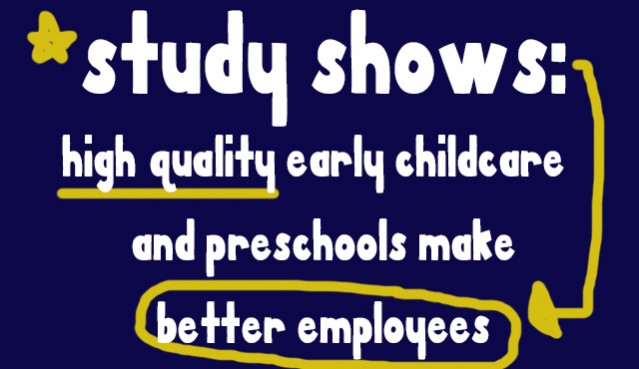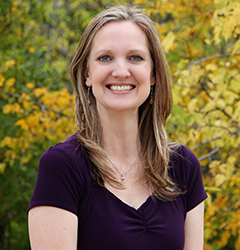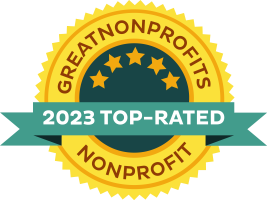
Camp Fire has been stressing the importance of social-emotional learning in the zero to five age range for years – and others are beginning to see just how valuable that is. ReadyNation has released a new report, Social-Emotional Skills in Early Childhood Support Workforce Success: Why business executives want employees who play well with others, that details how high-quality early childcare and preschools make better employees.
Since 2005, Camp Fire First Texas has implemented a comprehensive, research-based program designed to improve the quality of early education and care facilities located in targeted Fort Worth neighborhoods within the Fort Worth Independent School District (FWISD). The Camp Fire School Readiness Program focuses on teacher professional development and mentoring related to developmentally appropriate teaching practices for young children, with a focus on social-emotional learning. Each year, we see the children enrolled in a Camp Fire supported School Readiness early childhood center show a higher level of social-emotional development than their peers. This is vital because as the ReadyNation report highlights:
As computers and other technological tools are able to take on cognitive tasks, the human character/social-emotional skills of being able to persist and focus through a difficult problem to solve it, work with a team effectively, and manage emotions and impulses—are becoming more and more valuable
- 60 % of business decision-makers say it’s ‘more difficult to find job candidates with adequate social-emotional skills than candidates with adequate technical skills
- 88% of respondents believe there will be an increasing need for these skills
These social-emotional abilities are grounded in early childhood learning
- 85% of brain growth and development occur in the first 3 years, 90% by age 5
- The parallel between the success of an American business and the development of a child’s brain can’t be ignored
Character skills built in early childhood impact workforce outcomes
- Children with higher social-emotional skills are more likely to graduate from high school, earn a college degree, and have a full-time job by 25
- In contrast, children with lower social-emotional skills are more likely to be in juvenile detention, be arrested, and need public housing and other social-services
The Camp Fire School Readiness Report for 2015-2016 school year was just released and continues to see strides of social-emotional development both anecdotally from teacher focus groups and statistically with assessments that measure social-emotional growth.
It’s encouraging to see our global community embracing something we’ve known to be vital to the success of the next generation.
Camp Fire has been stressing the importance of social-emotional learning in the zero to five age range for years – and others are beginning to see just how valuable that is. ReadyNation has released a new report, Social-Emotional Skills in Early Childhood Support Workforce Success: Why business executives want employees who play well with others, that details how high-quality early childcare and preschools make better employees.
Since 2005, Camp Fire First Texas has implemented a comprehensive, research-based program designed to improve the quality of early education and care facilities located in targeted Fort Worth neighborhoods within the Fort Worth Independent School District (FWISD). The Camp Fire School Readiness Program focuses on teacher professional development and mentoring related to developmentally appropriate teaching practices for young children, with a focus on social-emotional learning. Each year, we see the children enrolled in a Camp Fire supported School Readiness early childhood center show a higher level of social-emotional development than their peers. This is vital because as the ReadyNation report highlights:
- As computers and other technological tools are able to take on cognitive tasks, the human character/social-emotional skills of being able to persist and focus through a difficult problem to solve it, work with a team effectively, and manage emotions and impulses—are becoming more and more valuable
-
- 60 % of business decision-makers say it’s ‘more difficult to find job candidates with adequate social-emotional skills than candidates with adequate technical skills
- 88% of respondents believe there will be an increasing need for these skills
- These social-emotional abilities are grounded in early childhood learning
- 85% of brain growth and development occur in the first 3 years, 90% by age 5
- The parallel between the success of an American business and the development of a child’s brain can’t be ignored
- Character skills built in early childhood impact workforce outcomes
- Children with higher social-emotional skills are more likely to graduate from high school, earn a college degree, and have a full-time job by 25
- In contrast, children with lower social-emotional skills are more likely to be in juvenile detention, be arrested, and need public housing and other social-services
The Camp Fire School Readiness Report for 2015-2016 school year was just released and continues to see strides of social-emotional development both anecdotally from teacher focus groups and statistically with assessments that measure social-emotional growth.
It’s encouraging to see our global community embracing something we’ve known to be vital to the success of the next generation.
 Lyn Lucas is the Chief Program Officer at Camp Fire First Texas. Lyn brings more than 20 years of experience working with children and youth. Her specialties include working with children in both the non-profit and for-profit sectors, managing school-age programs and NAEYC-accredited early childhood education programs. She has served as a Program Director, Child Development Coordinator, Child Care Center Director, Regional Director, a Master Registered Trainer in early care and education and has taught numerous classes and workshops throughout North Texas. Lyn holds a Master of Education in curriculum studies and serves on the Texas Youth and Child Care Worker Association board.
Lyn Lucas is the Chief Program Officer at Camp Fire First Texas. Lyn brings more than 20 years of experience working with children and youth. Her specialties include working with children in both the non-profit and for-profit sectors, managing school-age programs and NAEYC-accredited early childhood education programs. She has served as a Program Director, Child Development Coordinator, Child Care Center Director, Regional Director, a Master Registered Trainer in early care and education and has taught numerous classes and workshops throughout North Texas. Lyn holds a Master of Education in curriculum studies and serves on the Texas Youth and Child Care Worker Association board.






